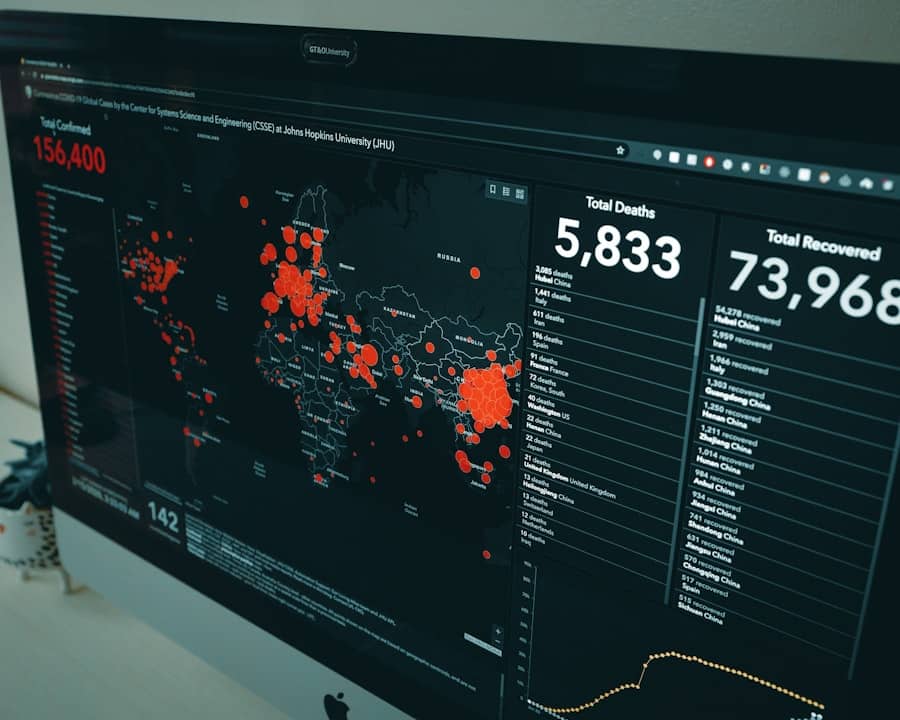In the digital age, the concept of data ownership has emerged as a pivotal issue, influencing various sectors from business to personal privacy. Data ownership refers to the rights and responsibilities associated with data, including who can access, control, and benefit from it. As individuals and organizations generate vast amounts of data daily, understanding the nuances of data ownership becomes increasingly critical.
The rise of the internet, social media, and mobile technology has transformed how data is collected, stored, and utilized, leading to complex questions about who truly owns this information. The implications of data ownership extend beyond mere legal definitions; they touch on ethical considerations, economic opportunities, and societal impacts. For instance, when individuals share their personal information on social media platforms, they often relinquish control over that data, raising concerns about privacy and consent.
Moreover, businesses that leverage consumer data for targeted advertising or product development must navigate the fine line between innovation and exploitation. As we delve deeper into the intricacies of data ownership, it becomes evident that this issue is not just a technical or legal matter but a fundamental aspect of our digital lives.
Key Takeaways
- Data ownership is a complex issue that involves legal, ethical, and technological considerations.
- Big data has a significant impact on society, influencing everything from business decisions to public policy.
- Legal and ethical considerations play a crucial role in determining who owns and controls data.
- Technology companies have a significant role in shaping data ownership through their products and services.
- Government regulations and policies are essential in establishing guidelines for data ownership and protection.
The Impact of Big Data on Society
Big data has revolutionized how we understand and interact with the world around us. The ability to collect and analyze vast amounts of information has led to significant advancements in various fields, including healthcare, finance, and marketing. For example, in healthcare, big data analytics enables providers to identify trends in patient care, predict outbreaks of diseases, and personalize treatment plans based on individual patient histories.
This data-driven approach not only enhances patient outcomes but also streamlines operations within healthcare systems. However, the societal impact of big data is not solely positive. The pervasive collection of personal information raises concerns about surveillance and the erosion of privacy.
As organizations harness big data for decision-making, there is a risk that individuals may be reduced to mere data points, stripped of their unique identities. This commodification of personal information can lead to discrimination and bias, particularly when algorithms are used to make critical decisions in areas such as hiring or law enforcement. The challenge lies in balancing the benefits of big data with the need to protect individual rights and maintain ethical standards.
Legal and Ethical Considerations

The legal landscape surrounding data ownership is complex and continually evolving. Various laws and regulations govern how data can be collected, stored, and shared, but these frameworks often lag behind technological advancements. In many jurisdictions, data protection laws like the General Data Protection Regulation (GDPR) in Europe have been enacted to safeguard individuals’ rights regarding their personal information.
These regulations grant individuals greater control over their data, including the right to access, rectify, or delete their information. Ethical considerations also play a crucial role in the discourse on data ownership. Organizations must grapple with questions about consent, transparency, and accountability when handling personal data.
For instance, when companies collect user data through apps or websites, they often do so under lengthy terms and conditions that few users read or understand. This lack of transparency can lead to ethical dilemmas regarding informed consent. Furthermore, the potential for misuse of data—whether through breaches or unethical marketing practices—highlights the need for organizations to adopt ethical frameworks that prioritize user rights and foster trust.
The Role of Technology Companies
Technology companies are at the forefront of the data ownership debate, as they are both the primary collectors and processors of vast amounts of information. Companies like Google, Facebook, and Amazon have built their business models around leveraging user data to enhance services and drive revenue through targeted advertising. This reliance on data has led to significant economic growth for these companies but has also raised questions about their responsibility in managing that data.
The role of technology companies extends beyond mere data collection; they also shape public perceptions of data ownership through their policies and practices. For example, Facebook’s Cambridge Analytica scandal highlighted how user data could be exploited for political purposes without users’ explicit consent. Such incidents have prompted calls for greater accountability and transparency from tech giants regarding their data practices.
Government Regulations and Policies
Governments worldwide are increasingly recognizing the need for robust regulations to address the challenges posed by data ownership. In response to growing public concern over privacy violations and data breaches, many countries have implemented or are in the process of developing comprehensive data protection laws. The GDPR serves as a benchmark for such regulations, establishing strict guidelines for how organizations must handle personal data while imposing significant penalties for non-compliance.
In addition to reactive measures, governments are also exploring proactive policies aimed at fostering a culture of responsible data use. Initiatives such as public awareness campaigns about digital literacy can empower individuals to make informed decisions about their data. Furthermore, some governments are considering frameworks that promote data portability—allowing users to transfer their data between platforms—thereby enhancing competition and giving individuals more control over their information.
As regulatory landscapes evolve, it is essential for policymakers to engage with stakeholders across sectors to create balanced approaches that protect individual rights while fostering innovation.
Data Privacy and Security Concerns

Data privacy and security are paramount concerns in the context of data ownership. With increasing incidents of cyberattacks and data breaches making headlines regularly, individuals are becoming more aware of the vulnerabilities associated with sharing personal information online. High-profile breaches involving major corporations have exposed millions of users’ sensitive information, leading to a growing demand for stronger security measures and accountability from organizations.
Moreover, the rise of sophisticated technologies such as artificial intelligence (AI) and machine learning has introduced new challenges in safeguarding personal data. While these technologies offer significant benefits in terms of efficiency and insights, they also raise concerns about how algorithms process personal information and make decisions based on that data. For instance, AI systems trained on biased datasets can perpetuate existing inequalities or lead to discriminatory outcomes in areas like hiring or lending.
Addressing these privacy and security concerns requires a multi-faceted approach that includes robust encryption methods, regular audits of data practices, and ongoing education for users about their rights.
The Future of Data Ownership
As we look toward the future of data ownership, several trends are likely to shape the landscape significantly. One emerging trend is the concept of decentralized data ownership facilitated by blockchain technology. By allowing individuals to maintain control over their own data through secure digital identities, blockchain could empower users to share their information selectively while retaining ownership rights.
This shift could disrupt traditional business models that rely on centralized data collection and storage. Additionally, as public awareness around data privacy continues to grow, there may be a shift toward more ethical business practices among organizations. Companies that prioritize transparency and user consent may gain a competitive advantage as consumers increasingly seek out brands that respect their privacy rights.
Furthermore, advancements in privacy-preserving technologies—such as differential privacy—could enable organizations to derive insights from aggregated datasets without compromising individual identities. The future landscape of data ownership will likely be characterized by a greater emphasis on user empowerment and ethical considerations as society grapples with the implications of living in an increasingly data-driven world.
Navigating the Data Ownership Debate
The debate surrounding data ownership is multifaceted and complex, encompassing legal, ethical, technological, and societal dimensions. As we navigate this evolving landscape, it is crucial for all stakeholders—individuals, organizations, governments—to engage in meaningful dialogue about their roles and responsibilities regarding personal information. By fostering a culture of transparency and accountability while prioritizing user rights, we can work towards a future where data ownership is respected and valued as an essential aspect of our digital lives.
In this context, it is essential to recognize that the conversation around data ownership is not merely about legal compliance or corporate responsibility; it is fundamentally about human dignity and respect for individual autonomy in an increasingly interconnected world. As we continue to explore the implications of big data and its impact on society, we must remain vigilant in advocating for practices that uphold ethical standards while harnessing the potential benefits that responsible data use can offer.
A related discussion can be found in the article on

